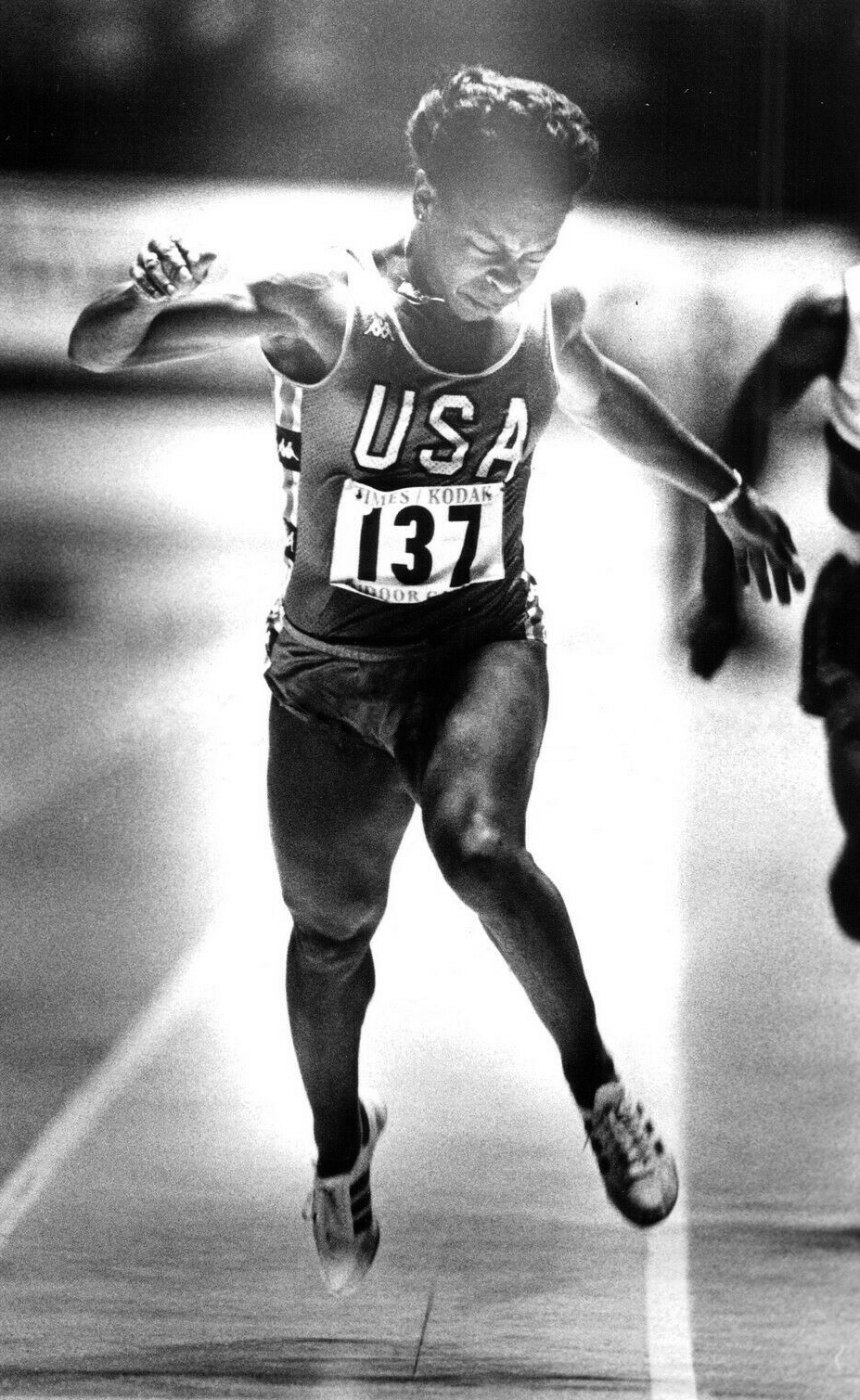1. Overview
Alice Regina Brown (born September 20, 1960) is a retired American sprinter who achieved significant success in the 100 meters and 4x100 meters relay events. A two-time Olympic gold medalist, she secured relay golds at both the 1984 Summer Olympics in Los Angeles and the 1988 Summer Olympics in Seoul. Brown also earned an individual silver medal in the 100 meters at the 1984 Los Angeles Games. Her career highlights include a gold medal in the 4x100 meters relay at the 1987 World Championships in Athletics in Rome. Throughout her career, Brown was particularly renowned for her exceptionally fast starts, a key attribute that made her an invaluable first leg runner for the U.S. relay teams.
2. Early life and background
Alice Brown's early life and educational journey laid the foundation for her distinguished athletic career.
2.1. Birth and childhood
Alice Regina Brown was born on September 20, 1960, in Jackson, Mississippi, U.S.
2.2. Education
Brown received her secondary education at John Muir High School in Pasadena, California. She later pursued higher education at California State University, Northridge.
3. Athletic career
Alice Brown's athletic career as a sprinter was marked by numerous achievements at the highest levels of international competition, particularly in the 4x100 meters relay and the 100 meters individual event.

3.1. Career overview
Alice Brown is a retired American sprinter whose primary events included the 100 meters, 200 meters, and the 4x100 meters relay. She was notably recognized for her exceptionally fast start, which led to her consistent role as the first leg runner for the U.S. Olympic 4x100 meters relay teams from 1984 to 1988. Her personal best times were 10.92 s in the 100 meters and 22.39 s in the 200 meters, both achieved in 1988. In 1987, she weighed 130 lb (59 kg) and stood 5.2 ft (1.6 m) tall.
3.2. 1980 Olympics boycott
Brown qualified for the 1980 U.S. Olympic track and field team, but she did not compete due to the U.S. Olympic Committee's boycott of the 1980 Summer Olympics held in Moscow, USSR. As a result of her qualification despite the boycott, she was among 461 athletes who received a Congressional Gold Medal instead.
3.3. 1984 Los Angeles Olympics
At the 1984 Los Angeles Olympics, Alice Brown achieved significant success in both individual and team events. In the individual 100 meters final, Brown and her American teammate Jeanette Bolden initially surged into the lead. However, they were eventually overtaken by world record holder Evelyn Ashford, with Brown securing the silver medal with a time of 11.13 s.
Later in the Games, Brown served as the first leg runner for the U.S. 4x100 meters relay team, which went on to win the gold medal. The team demonstrated overwhelming dominance, beating Canada by over a second, which marked the greatest winning margin in the event's history. This commanding victory was largely attributed to a very strong U.S. team, which included all three American sprinters who had qualified for the 100 meters final, coupled with Brown's superb start. The U.S. team was considered a clear favorite for the gold due to the boycott by several Eastern Bloc countries, including East Germany and the Soviet Union, which prevented some of the strongest competing nations from participating.
Shortly after the Olympics, Brown participated in the 100 meters at the Friendship Games in Prague. This event was organized for athletes from Eastern Bloc countries that had boycotted the 1984 Olympics. Brown was the only U.S. track athlete to enter the competition, but she was unable to replicate her Olympic medal success there.
3.4. 1987 World Championships
In 1987, Alice Brown won a gold medal in the 4x100 meters relay at the World Championships held in Rome, Italy. The U.S. team was considered a strong favorite and was well-drilled, consisting of Alice Brown (first leg), Diane Williams (second leg), Florence Griffith-Joyner (third leg), and Pam Marshall (anchor). They demonstrated their strength by winning their semi-final with a time more than a second faster than the usually dominant East German team. In the final, they defeated the East German team, who took the silver medal, by clocking a championship record of 41.58 s. This time set a new U.S. record at the time and remains one of the fastest times ever recorded in the event's history.
3.5. 1988 Seoul Olympics
Brown qualified for and competed at the 1988 Summer Olympics in Seoul. In the final of the Women's 4x100 meters relay, nearly all the strongest nations were present, with the exception of the Jamaican team, which did not start. Alice Brown once again led the United States' challenge, running the first leg. She executed a superb piece of relay running, leaving the field trailing in her wake. By the time she handed the baton over to Sheila Echols (second leg), she had caught and was passing the Bulgarian athlete in the next lane. Florence Griffith-Joyner (third leg) took over and ran solidly, before handing off to Evelyn Ashford (anchor). Ashford then made an impressive surge, making up 9.8 ft (3 m) on Marlies Göhr and leading the U.S. team to victory by a clear meter. The winning time was 41.98 s, which was slightly slower than the U.S. record due to some sloppy baton exchanges. Despite this, the victory was a testament to the team's superior basic speed and sheer talent, securing the U.S. their second consecutive gold medal in this event.
3.6. Key strengths
Alice Brown was particularly noted for her exceptionally fast start in races. This crucial attribute made her an ideal first leg runner for the U.S. 4x100 meters relay teams, allowing her to establish an early lead and put her team in a strong position from the outset.